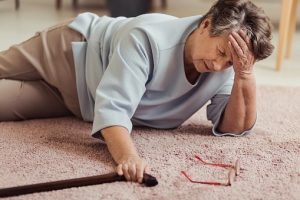 As we age, the risk of many health problems and complications increases, unfortunately. One of those complications is a higher risk of falls, which can be quite detrimental for seniors as it leads to disability and other health-related problems. Worse yet, many seniors who fall are often alone in their homes and are left on the ground for hours.
As we age, the risk of many health problems and complications increases, unfortunately. One of those complications is a higher risk of falls, which can be quite detrimental for seniors as it leads to disability and other health-related problems. Worse yet, many seniors who fall are often alone in their homes and are left on the ground for hours.
It’s important to be aware of the risk of falls to reduce your risk. Below you will uncover the most common causes of falls and how you can manage them.
Causes and Prevention of Falls
Advertisement
Environment: Where you live is a common cause for falls. Showers, loose carpet ends, ill-placed furniture, and poor lighting are all causes of a higher risk of falls within your home. To reduce your risk of falls within your home, ensure all safety precautions are being meant. Have non-slip pads in the shower, fasten all loose ends of carpets, ensure there is no clutter in the middle of rooms, and change all light bulbs so that rooms are well-lit. It may also be a good idea to add grab bars to areas like the bathroom or to get out of bed.
Vision: When you can’t see well, it becomes more difficult to avoid obstacles, which can lead to falls. It’s important that seniors get regular eye examinations to monitor changes in vision and correct any problems.
Fitness: Exercise can help with balance, strength, and coordination, all important aspects of preventing falls. When a person is weak or has poor balance and coordination, the risk of falls increases. Maintaining a healthy fitness level can reduce your risk of dangerous falls.
Health issues: Having a pre-existing medical condition can raise the risk of falls. For example, some conditions may cause dizziness, fainting, or impair mobility. In order to reduce falls, you may consider using a cane or walker to improve stability, avoiding being alone so that someone can help support you, or using other types of technologies to alert emergency persons when you have fallen.
Medications: Sometimes a medication will list dizziness, fainting, or an increased risk of falls as a side effect. Discuss with your doctor any symptoms that can increase your risk of falls.
Related: Practicing tai chi scientifically reduces risk of falls in older adults
